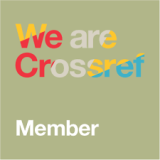STRATEGI ADAPTASI PEMASARAN KERAJINAN TENUN ULOS PADA PASAR TRADISIONAL, MODERN DAN ON LINE DI TAPANULI UTARA (Studi di Kota Tarutung)
Abstract
Full Text:
PDFReferences
Badaruddin. 2005. "Modal Sosial dan Pemberdayaan Masyarakat Nelayan". Dalam Arif Nasution, Sublihar, Badaruddin (ed). Isu-isu kelautan: Dari Kemiskinan Hingga Bajak Laut. Yogyakarta: Pustaka Pelajar.
Budiman, Arief. 2000. Teori Pembangunan Dunia Ketiga. Jakarta: PT Gramedia Pustaka Utama.
Bungin, Burhan. 2007. Penelitian Kualitatif. Surabaya: Kencana.
Damsar. 2002. Sosiologi Ekonomi. Jakarta: PT Raja Grafindo Persada.
Danandjaja. 2005. Metode Penelitian Sosial. Medan: Universitas Sumatera Utara Press.
Danim, Sudarwan. 2002. Menjadi Peneliti Kualitatif: Ancangan Metodologi, Presentasi, dan Publikasi Hasil Penelitian untuk Mahasiswa dan Peneliti Pemula Bidang Ilmu-ilmu Sosial, Pendidikan, dan Humaniora. Bandung: Penerbit Pustaka Setia.
Fukuyama, F. 1995. Trust: The Social Capital and the Creation of Prosperity. New York: Free Press.
Fukuyama, Fancis. 2002. Trust: Kebajikan Sosial dan Penciptaan Kemakmuran. Yogyakarta: Penerbit Qalam.
Hasbullah, Jousari. 2006. Social Capital (Menuju Keunggulan Budaya Manusia Indonesia). Jakarta: MR-United Press.
Lawang, Robert. 2004. Capital Sosial: Dalam Perspektif Sosiologis Suatu Pengantar. Jakarta: Fisip UI Press.
McClelland, David C. 1971. The Achievement Motive in Economic Growth dalam Finkle & Gable (eds.), hal 83-100. Dikutip dari "Teori Pembangunan Dunia Ketiga" karya Arief Budiman.
Nawawi, Hadari. 1990. Metode Penelitian Bidang Sosial. Yogyakarta: Universitas Gadjah Mada Press.
Rangkuti, Freddy. 2009. Strategi Promosi Yang Krearif. Jakarta: PT. Gramedia Pustaka Utama.
Ritzer, George, Douglas J. Goodman. 2007. Teori Sosiologi Modern. Jakarta: Kencana.
Ritzer,G. 2004. Teori Sosiologi Modern. Jakarta: PT. Rajawali Pers.
Sugiono.2005, Metodologi Penelitian Administrasi. Bandung: Alfabeta.
Suwarsono, Alvin Y. SO. 2006, Perubahan Sosial dan Pembangunan. Jakarta: LP3ES.
Suyanto, Bagong, dan Sutinah. 2008. Metode Penelitian Sosial: Berbagai Alternatif Pendekatan. Jakarta: Kencana.
Sztompka, Piotr. 2007. Sosiologi Perubahan Sosial. Jakarta: Prenada Media Group.
DOI: http://dx.doi.org/10.30829/ajei.v5i1.7674
Refbacks
- There are currently no refbacks.
Copyright (c) 2020 Harisan Boni Firmando

This work is licensed under a Creative Commons Attribution-ShareAlike 4.0 International License.





3.jpg)






